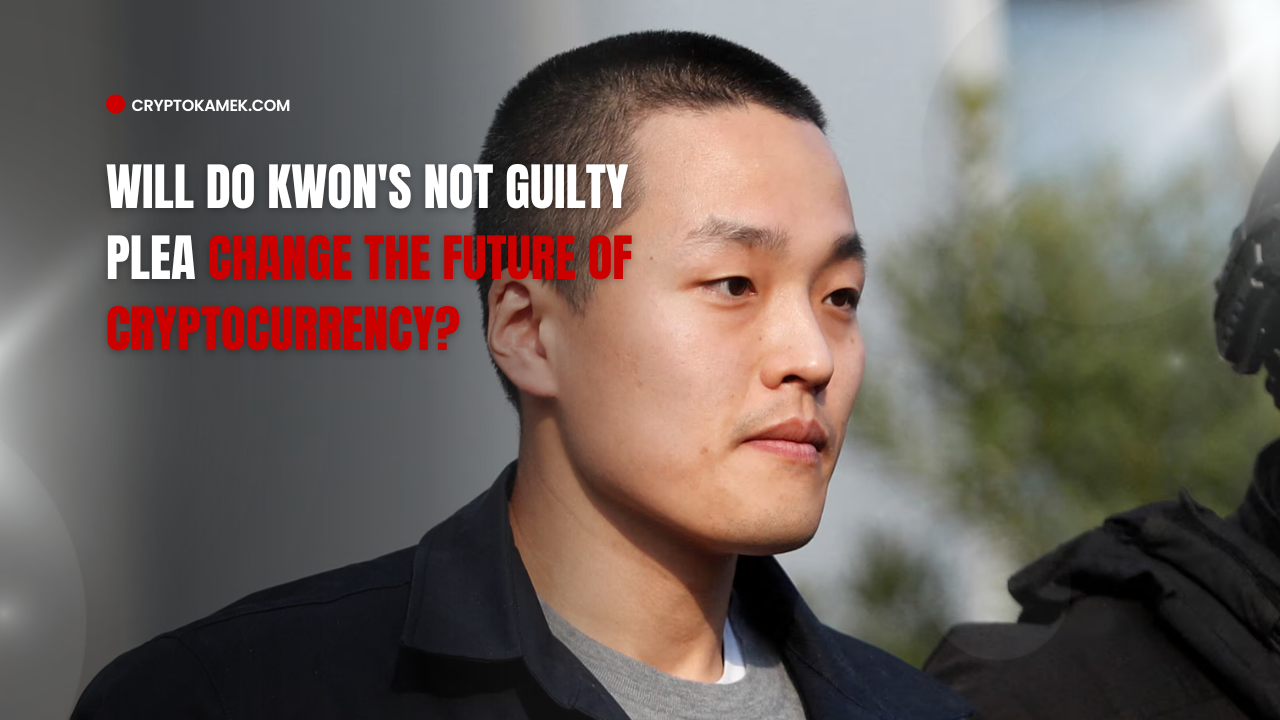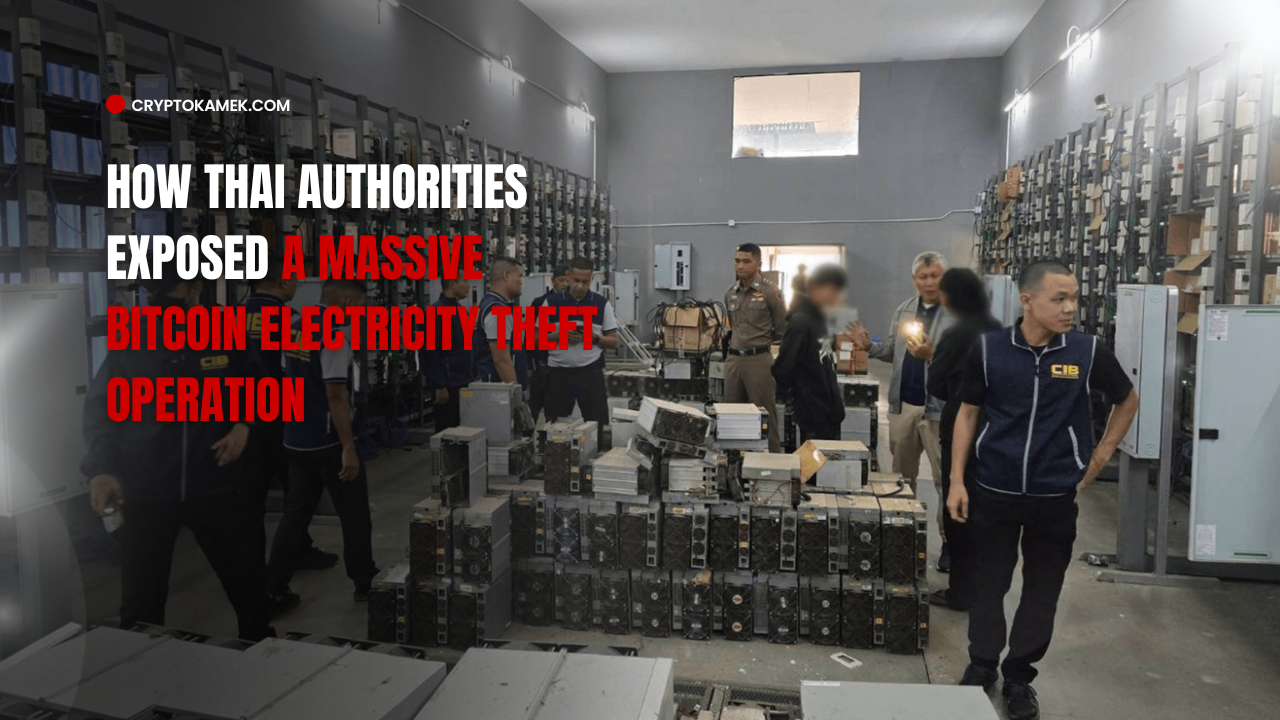

The Surprising Details Behind Do Kwon’s Not Guilty Plea in the TerraUSD Case
Highlights:
- Do Kwon, co-founder of Terraform Labs, has pleaded not guilty to charges in the TerraUSD case, including securities fraud and conspiracy.
- The collapse of the Terra ecosystem and its stablecoin, TerraUSD (UST), caused significant financial losses for investors.
- Kwon’s legal troubles stem from accusations of investor deception, market manipulation, and fraud.
- The case has led to increased regulatory scrutiny in the cryptocurrency space, prompting questions about blockchain technology and investor protections.
- Kwon’s decision to decline bail and remain in custody has sparked speculation about his legal strategy.
Cryptocurrency has undeniably reshaped the financial landscape over the last decade. Its promise of decentralized finance, transparency, and innovation has made it an attractive investment option for millions worldwide. However, as the market booms, the volatility and risks associated with digital currencies have also come to light. One such case that has caught global attention is the collapse of the Terra ecosystem, particularly TerraUSD (UST) and Luna, which led to significant financial losses for investors. At the heart of the controversy is Do Kwon, the co-founder of Terraform Labs, who has pleaded not guilty to charges related to the collapse of his projects.
This article will take you through the rise and fall of TerraUSD, the legal proceedings surrounding Do Kwon, and the far-reaching implications for the cryptocurrency industry. Whether you’re an investor, a crypto enthusiast, or simply curious about the case, there’s a lot to unpack here. Let’s explore the surprising details behind Kwon’s not guilty plea and what it could mean for the future of digital currencies.
The Rise and Fall of TerraUSD
The TerraUSD (UST) case is a story of ambition, innovation, and ultimately, a catastrophic collapse. At its peak, UST was a prominent stablecoin tied to the value of the U.S. dollar, designed to offer stability in the volatile world of cryptocurrencies. Unlike traditional stablecoins, which are backed by real-world assets, UST used an algorithmic mechanism to maintain its peg. This approach initially worked, helping Terraform Labs gain credibility and attract investors.
The success of UST was also closely linked to Luna, a cryptocurrency native to the Terra ecosystem. Investors were drawn to the promise of high yields through staking and decentralized finance (DeFi) platforms. As the value of Luna surged, so did the popularity of UST, creating a perfect storm of growth. But this rapid rise also made it more vulnerable to fluctuations in the market. When the price of Luna began to fall, the algorithm used to keep UST stable failed, triggering a chain reaction that led to the complete collapse of the Terra ecosystem.
Allegations against Do Kwon have been centered around investor deception. Critics claim that Kwon misrepresented the stability and security of UST to attract investors, who were left with huge losses when the system imploded. The collapse also exposed vulnerabilities in the mechanism used to maintain UST’s peg and raised questions about whether it was a case of financial crime.
Kwon’s role in the disaster led to charges of securities fraud and conspiracy to commit money laundering, and his arrest in Montenegro in 2022 set the stage for a highly publicized legal battle. As the case unfolds, many are left wondering: Was this a failure of technology, a result of market forces, or something more nefarious?
Legal Proceedings Against Do Kwon
The legal situation surrounding Do Kwon has been nothing short of dramatic. After his arrest, Kwon was extradited from Montenegro to face charges in the U.S. and South Korea. The U.S. authorities quickly moved forward with the case, presenting a nine-count indictment that detailed multiple charges related to the collapse of TerraUSD. These charges include securities fraud, wire fraud, and conspiracy to commit money laundering, all of which stem from Kwon’s alleged role in deceiving investors and manipulating the market.
Indictment Details
The indictment against Do Kwon paints a bleak picture of what transpired within the Terra ecosystem. According to prosecutors, Kwon engaged in fraudulent activities, misrepresenting the stability of UST and manipulating the market in ways that ultimately harmed investors. The specific charges include:
- Securities fraud: This charge alleges that Kwon violated U.S. securities laws by selling UST and Luna without proper registration and by providing false information to investors.
- Wire fraud: Kwon is accused of using electronic communications to defraud investors, including misleading statements about the security and stability of the Terra ecosystem.
- Conspiracy to commit money laundering: Prosecutors allege that Kwon and others conspired to hide the movement of funds in ways that violated anti-money laundering laws.
These charges are not just about the collapse of a single cryptocurrency. They are part of a broader effort by U.S. regulators to hold individuals accountable for fraudulent practices in the crypto space. The indictment has sent a strong message that the legal system will not tolerate fraud, even when it involves cutting-edge technology like blockchain.
Not Guilty Plea
During his court appearance, Do Kwon entered a not guilty plea to all charges through his attorney. Kwon’s decision to plead not guilty has raised eyebrows, especially considering the overwhelming evidence presented by prosecutors. However, his defense team has been quick to argue that the charges are based on a misunderstanding of blockchain technology and the cryptocurrency market.
Kwon’s legal team has also pointed out that the collapse of TerraUSD was not the result of intentional fraud but rather the failure of an experimental algorithmic stablecoin in an unpredictable market. This defense suggests that the case could ultimately come down to whether Kwon and Terraform Labs were negligent or intentionally deceptive in their actions.
One of the most notable aspects of the case is Kwon’s decision to decline bail. As of now, he remains in custody while awaiting trial. This decision has fueled speculation about his legal strategy and whether he plans to fight the charges vigorously or pursue a settlement. The outcome of the trial will likely have significant implications for both Kwon’s future and the broader cryptocurrency industry.
Implications for the Cryptocurrency Industry
The TerraUSD case has far-reaching consequences for the cryptocurrency world. As a high-profile example of financial crime in the crypto space, it has prompted regulators and lawmakers to take a closer look at how cryptocurrencies are regulated and how bad actors are held accountable. The collapse of TerraUSD has highlighted several critical issues that could reshape the future of cryptocurrencies:
- Regulatory scrutiny: The U.S. Securities and Exchange Commission (SEC) has already ramped up its efforts to regulate the cryptocurrency market. High-profile cases like Kwon’s serve as a wake-up call for investors and companies alike, signaling that regulatory bodies are increasingly focusing on holding individuals accountable for market manipulation and fraud.
- Investor behavior: Following the collapse of TerraUSD, many investors are more cautious about where they place their money. The fear of another collapse, coupled with the rise of regulatory scrutiny, has made some investors hesitant to put their funds into cryptocurrencies that are not fully backed by assets.
- Blockchain technology: As the case against Kwon unfolds, there may be a renewed focus on blockchain technology itself. Could the technology that underpins cryptocurrencies be vulnerable to exploitation, or is the issue more about the way it’s used? These questions will continue to shape public opinion about the long-term viability of cryptocurrencies.
The TerraUSD collapse was a wake-up call, but its legal aftermath could provide more clarity on the future of the crypto industry.
The Future of Cryptocurrency Regulation
As we look to the future, the ongoing legal battles surrounding Do Kwon will likely play a role in shaping future cryptocurrency regulations. Governments around the world are grappling with how to regulate digital assets without stifling innovation. The Kwon case is one of many that could help establish precedents for how the law treats cryptocurrencies.
Future Implications for Investors
For investors, the TerraUSD case serves as a reminder of the risks involved in the crypto market. While cryptocurrencies offer exciting opportunities, they also come with significant risks, especially when it comes to stablecoins and projects that promise high returns. As the legal landscape around crypto evolves, investors will need to stay informed about new regulations and how they affect the market.
The case also raises important questions about transparency and accountability in the cryptocurrency space. Will regulators impose stricter rules on crypto companies, or will they leave it to the market to self-regulate? The answer to this question will have far-reaching consequences for investors and the industry as a whole.
Final Thoughts
Do Kwon’s not guilty plea in the TerraUSD case has set the stage for a significant legal battle with major implications for the cryptocurrency world. Whether Kwon is found guilty or not, the case will undoubtedly shape future discussions on how cryptocurrencies should be regulated and how fraud in the space should be addressed. As developments unfold, stakeholders—investors, companies, and regulators alike—will need to stay vigilant, as the future of digital currencies hinges on the lessons learned from this high-profile case.
The outcome of this trial may not only determine Do Kwon’s fate but also set important precedents for the future of cryptocurrency regulation, investor protections, and financial crime prevention in the rapidly evolving world of digital assets.
References:






